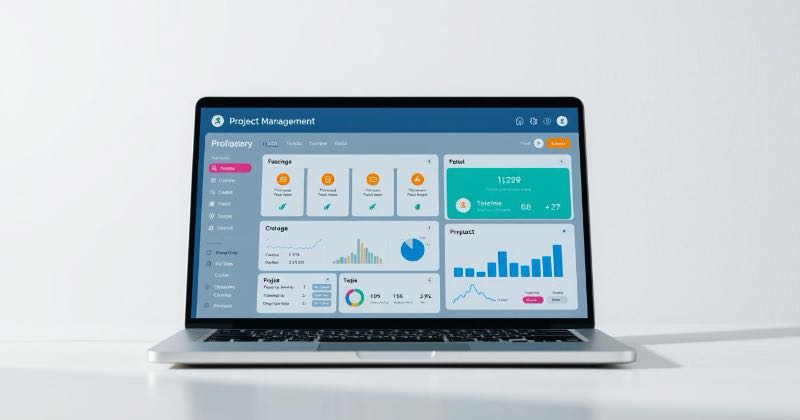Big Data Analytics for Business: Unlocking New Opportunities
In today's digital era, Big Data Analytics has become a cornerstone of business success. Companies across industries are leveraging vast amounts of data to make informed decisions, streamline operations, and gain a competitive edge. This article explores the transformative power of big data analytics for businesses, highlighting its benefits, strategies, challenges, and future potential.
What is Big Data Analytics?
Big Data Analytics refers to the complex process of examining large and varied data sets — or big data — to uncover hidden patterns, correlations, market trends, and customer preferences. By utilizing advanced analytical techniques and powerful computing systems, businesses can turn raw data into actionable insights.
Big data is typically characterized by the “4 Vs”: Volume (massive amounts of data), Velocity (the speed at which data is generated and processed), Variety (different types of data: structured and unstructured), and Veracity (accuracy and reliability of data).
Why is Big Data Analytics Important for Business?
The importance of big data analytics for business cannot be overstated. Organizations that harness the power of big data can:
- Make Data-Driven Decisions: Analytics transforms raw data into valuable insights, supporting better business strategies and outcomes.
- Understand Customer Behavior: By analyzing customer data, businesses can personalize experiences, improve satisfaction, and build loyalty.
- Optimize Operations: Identifying inefficiencies and streamlining processes leads to cost reductions and productivity gains.
- Drive Innovation: Discovering new business models and product opportunities through data-driven insights fuels growth and innovation.
- Enhance Risk Management: Predictive analytics can identify potential risks and fraud, enabling proactive management and mitigation.
Key Big Data Analytics Tools and Technologies
A variety of tools and technologies power big data analytics in business. Some of the most popular include:
- Hadoop: An open-source framework for distributed storage and processing of large datasets.
- Spark: A fast, in-memory data processing engine used for big data analytics and machine learning.
- NoSQL Databases: Such as MongoDB and Cassandra, enable flexible storage and fast retrieval of unstructured data.
- Business Intelligence Platforms: Tools like Tableau, Power BI, and Qlik help visualize and analyze data for strategic decision-making.
- Cloud Services: Platforms like AWS, Google Cloud, and Azure offer scalable infrastructure and analytics solutions for businesses of all sizes.
- Machine Learning: Algorithms that enable predictive and prescriptive analytics, automating data-driven decisions.
Big Data Analytics Strategies for Business Success
To fully harness the benefits of big data, companies should develop comprehensive analytics strategies. Key steps include:
- Define Clear Business Objectives: Align analytics initiatives with overall business goals for maximum impact.
- Invest in the Right Technology: Choose scalable and flexible analytics tools that fit your data needs.
- Build a Data-Driven Culture: Encourage data literacy and collaboration between IT, analysts, and business teams.
- Ensure Data Quality and Governance: Establish processes for data accuracy, privacy, and compliance.
- Leverage Advanced Analytics: Use predictive and prescriptive analytics to anticipate trends and optimize decision-making.
Real-World Applications of Big Data Analytics in Business
Big data analytics is transforming businesses in various industries:
- Retail: Analyzing purchasing behavior to optimize inventory, personalize marketing, and improve customer experience.
- Finance: Detecting fraudulent transactions, managing risk, and forecasting market trends with predictive analytics.
- Healthcare: Improving patient care, reducing costs, and supporting medical research through data-driven insights.
- Manufacturing: Enhancing supply chain management, predictive maintenance, and quality control using real-time analytics.
- Marketing: Segmenting audiences and optimizing campaigns based on customer data and behavior patterns.
Benefits of Big Data Analytics for Business
- Competitive Advantage: Companies that leverage big data can spot opportunities and threats faster than competitors.
- Operational Efficiency: Streamlined processes and resource optimization drive down costs and boost profitability.
- Customer Insights: Deeper understanding of customer needs leads to better products, services, and experiences.
- Innovation: Uncovering new trends and market opportunities supports the development of innovative solutions.
- Agility: Rapid access to actionable insights enables businesses to respond quickly to market changes.
Challenges of Implementing Big Data Analytics
While big data analytics offers significant advantages, businesses may face several challenges:
- Data Privacy and Security: Protecting sensitive information and complying with regulations is critical.
- Data Integration: Combining data from multiple sources can be complex and time-consuming.
- Talent Shortage: There is a high demand for skilled data scientists and analysts.
- Cost: Investing in technology and infrastructure can be expensive, especially for small businesses.
- Change Management: Adopting a data-driven culture requires organizational change and employee buy-in.
The Future of Big Data Analytics in Business
The future of big data analytics in business is bright. With the rise of artificial intelligence, machine learning, and IoT devices, the volume and variety of data will continue to grow exponentially. Businesses that invest in advanced analytics capabilities will be better positioned to innovate, adapt, and thrive in an increasingly competitive landscape.
Emerging trends such as real-time analytics, automation, and personalized customer experiences will further shape the way organizations leverage data for success.
Conclusion
Big Data Analytics is transforming the way businesses operate, compete, and innovate. By turning data into actionable intelligence, companies can unlock new opportunities, drive growth, and deliver value to customers. As technology continues to evolve, embracing a data-driven approach will be essential for future business success.
Whether you are a business leader, entrepreneur, or data enthusiast, understanding the impact of big data analytics is key to navigating the future of business.



